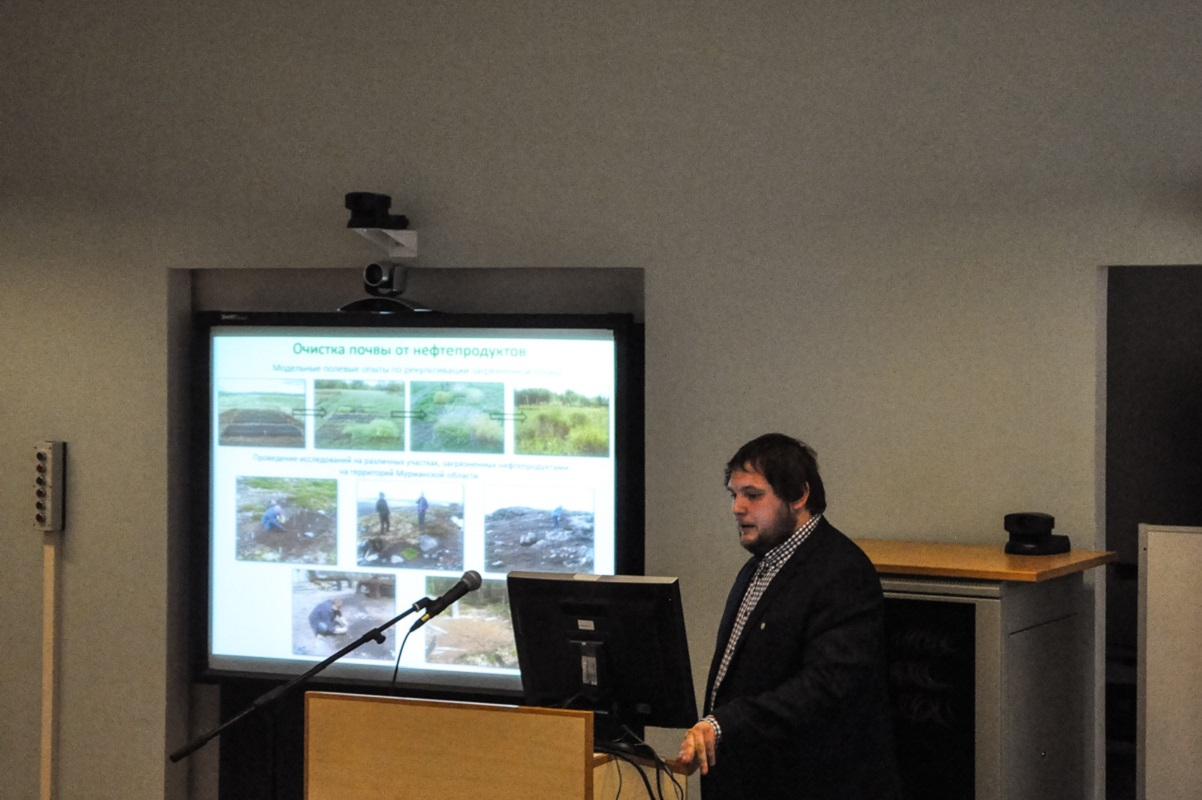Expanding collaboration between SPbU and Kolsky Research Centre

At St Petersburg University, St Petersburg University and Kolsky Research Centre have held a joint seminar to discuss the opportunities for collaboration.
Collaboration can benefit both parties, said SPbU Professor, Corresponding Member of the Russian Academy of Sciences and Chairperson of the Kolsky Research Centre Sergei Krivovichev.
I am well aware what opportunities and what scope SPbU has. Primarily I mean an extensive research infrastructure. We do have opportunities to excel in research.
SPbU Professor Sergei Krivovichev
“SPbU can serve as an intellectual platform for its colleagues from Apatity. The Kolsky Research Centre, as it is close to the Arctic region, is at the forefront of research, and the scientists from SPbU therefore can have access to the unique research objects”, — said Sergei Krivovichev.
From 2000 to 2008, in the Khibiny Mountains SPbU and KRC were studying 20 new and rare minerals with the functional properties. The studies have been published in the journals indexed in Web of Science.
Another area for collaboration is biomineralogy that is a study of biominerals and of biomineralization. SPbU Professor Olga Frank-Kamenetskaia, Candidate of Geology and Mineralogy Alina Izatulina and their colleagues from Apatity examine kidney stones in people who live in St Petersburg and Kolsky peninsula and assess how microelements in physiological liquids can influence mechanisms of stone formation. In July 2018, SPbU and KRC’s scientists are to set off to a joint expedition as part of the RFBR’s project “Morphogenesis and crystal chemistry of crystal hydrates of the oxalates that are formed within interaction between microorganisms, rock formations, and minerals”.
Geology is not the only sphere for collaboration between SPbU and Arctic Research Centre.
The KRC delivered a number of short presentations about its research projects. The Centre has three branches, seven institutes, and Sverdrup Station that focus on a wide range of studies: from mining and medicine to history and cultural studies. Their overarching priority is sustainable development of the Russian Arctic.
At the second part of the seminar, SPbU’s scientists shared their views on how to develop collaboration. SPbU’s Associate Professor and Head of the Department of Biogeography and Nature Preservation Aleksabdr Egorov suggested joint projects on introducing plants in the Arctic, while Irina Fedorova, Head of the Department of Geoecology and Nature Use, focused on urbanized and natural ecosystems in the polar regions and suggested the scientists should apply for grants. The Centre can also act as a potential employer for the University’s graduates and become a member of the examination committees and councils of the educational programmes. Oleg Grunski, Director of the Resource Centre for X-ray Diffraction Studies, delivered a report on the opportunities that the Research Park could offer.
At the end of the seminar, Professor Sergei Krivovichev suggested organizing a research competition to provide a financial support to the joint research projects. “It could help us find friends among our colleagues. Another option is conferences. The KRC’s Mineral Resources University suggested a seminar on the theoretical and applied geomechanics to attract geologists and mathematicians”, — said Sergei Krivovichev.

